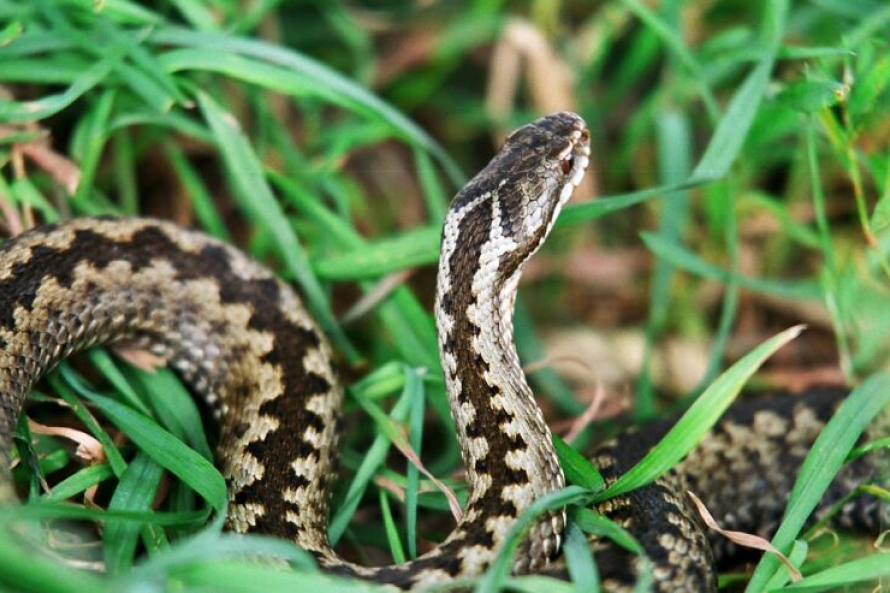It looks as if last year’s annual total of 60 snake bites will be topped this year, as 50 cases have already been registered by mid-August.
One might call the relationship between people and snakes this year as rather unfriendly. The viper is Latvia’s only native poisonous reptile. It is not an aggressive creature, however does strive to defend itself against incautious humans.
A person suffering from a viper’s bite should immediately take steps to protect themselves from its toxic poisoning effects.
Zoologist Edgars Dreijers told Panorāma that vipers only bite when necessary to counter a sudden threat. The high number of snake bite victims is due to this year’s unusually warm late summer weather. Vipers like to warm themselves in the sun, curled up on logs and stumps or in the grass. People tend not to notice the difficult-to-spot vipers until they are unwittingly right upon them, and get bitten somewhere on the feet or legs.
Despite no deaths reported from a viper bite for the past fifty years, Latvia’s sole poisonous snake can inflict some serious harm to one’s health. But if a person is in reasonably good health and free from allergies, a viper’s bite in the leg is not necessarily cause for panic.
“Taking the proper measures for a commonly-located snake bite on the extremities, the worst the victim should experience is an increased heart rate, shortness of breath, sweating and swelling around the wound. We get calls from viper-bitten persons usually because they are having an allergic reaction to the poison. Then there can be a serious threat of blockage to the breathing airways,” warned first-aid expert Haralds Luckovskis of the state Emergency Medical Service (NMPD).
While waiting for the arrival of medics, a viper’s bite victim should remain still, especially avoiding movement of the wounded area and drink lots of cold water, suck on ice, or eat ice cream. This helps reduce swelling from the bite. Residents of Latgale and the rural districts around Riga have encountered vipers more than in other parts of the country, according to the statistics.
NMPD spokeswoman Inga Vitola told Panorāma that snake-bite accidents happen not just in the deep woods or dense shrubbery, but right near homes and gardens and domestic firewood stacks.
In any case, the wearing of rubber boots and loose-cuffed long pants are the simplest preventive measures for avoiding an unpleasant encounter with a viper. For those heading out for wood-chopping or gardening chores, they should remember to wear long, thick working gloves as well. The snake’s teeth are quite short, and will have less chance of puncturing the skin if they can’t reach through the person’s outerwear.
























